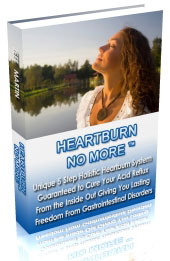(NewsInferno.com - 12 Aug 2008) - We have been reporting on drugs such as Prilosec and Nexium—part of a class of drugs called Proton Pump Inhibitors, or PPIs—that the US Food and Drug Administration (FDA) investigated for a suspected link between cardiac trouble and PPIs. Also, because such drugs may be overly effective at stopping stomach acid production, they have been know to raise pneumonia, bone loss, and fracture risk; this, by over 40 percent in patients on long-term use.
Now, a new Canadian study of PPIs such as Aciphex, Nexium, Prevacid, Prilosec, and Protonix and osteoporosis-related fractures has revealed a link between long-term use of PPis and increased risk for such fractures of the hip, wrist, or spine. The link appeared in patients taking PPIs after about seven years. PPI drug makers claim they haven’t seen increased osteoporosis-related fracture risk in people using their products.
The study included about 63,000 adults aged 50 and older in Manitoba, Canada, and also included about 15,300 patients who sustained an osteoporosis-related fracture of the hip, spine, or wrist from 1996 to 2004. The researchers, including University of Manitoba’s Laura Targownik, MD, MSHS, also reviewed participants’ prescription records and found that those who received an osteoporosis-related fracture were nearly twice as likely to have taken a PPI for at least seven years; those on PPIs for six or less were not linked to fracture risk. Those with hip fractures were 62% more likely to have used a PPI for at least five years.
It remains unclear how PPIs might increase fracture risk, but some experts believe it may be related to their stomach acid inhibiting qualities. Targownik’s team speculates that PPIs speed up bone mineral loss; however, the study doesn’t prove this. Also, the researchers considered a variety of other factors, including participants’ other prescriptions, medical history, and income.
Meanwhile, long-term PPI use and fracture risk have been linked in previous research and that association “is certainly a strong basis for encouraging further investigation,” write the editorialists, who included J. Brent Richards, MD, of Canada’s McGill University. “Certainly, at one extreme, such as in patients with bleeding ulcers, the beneficial effects may far outweigh the risks associated with fractures,” the editorial states. “At the other extreme, liberal prescription of proton pump inhibitors for nebulous disorders for extended periods of time is likely worth revisiting.”
Targownik’s study doesn’t specify which PPIs the patients took. AstraZeneca, maker of Nexium responded, “AstraZeneca does not agree with the conclusion of the CMAJ study,” said spokeswoman Corey Windett Judee Shuler, senior director of corporate communications for Eisai Inc., maker of Aciphex, said the results “warrant further study, as these fractures are important medical issues that can occur for a variety of reasons.
According to an editorial published along with the study and that appeared in the Canadian Medical Association’s journal, CMAJ , additional research is needed. Until then, they suggest patients and their doctors reevaluate the risks and benefits of long-term PPI use.






